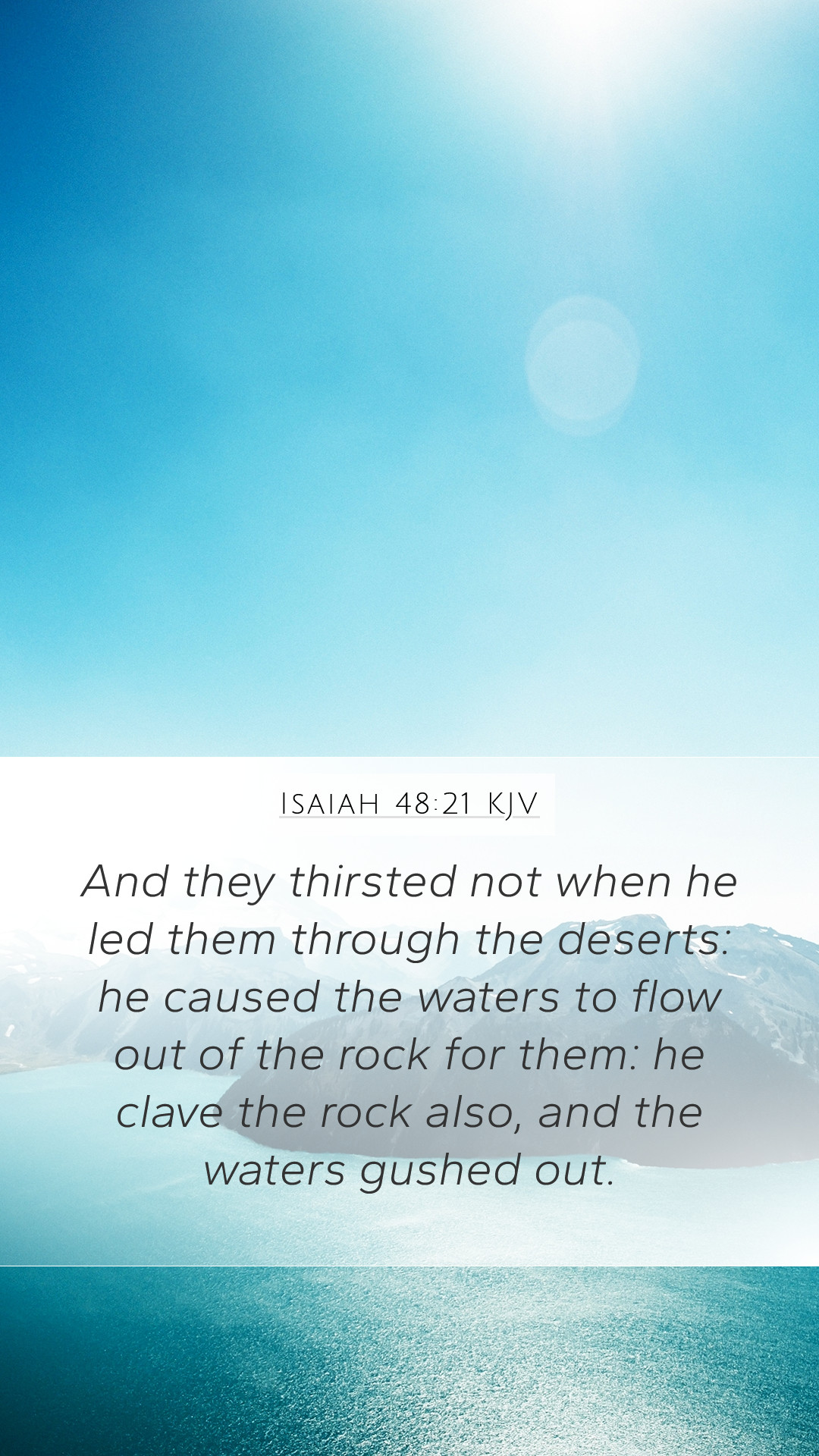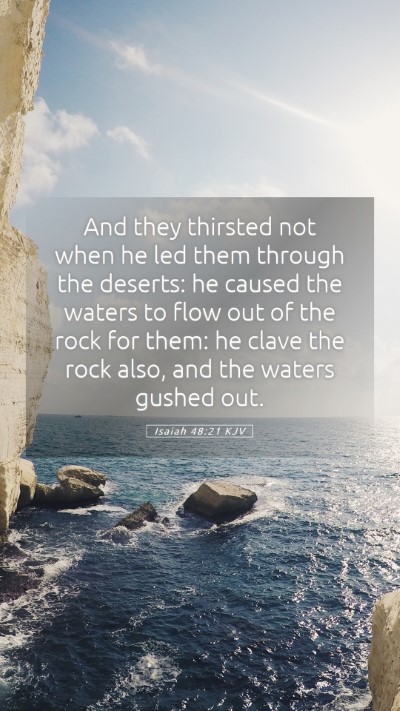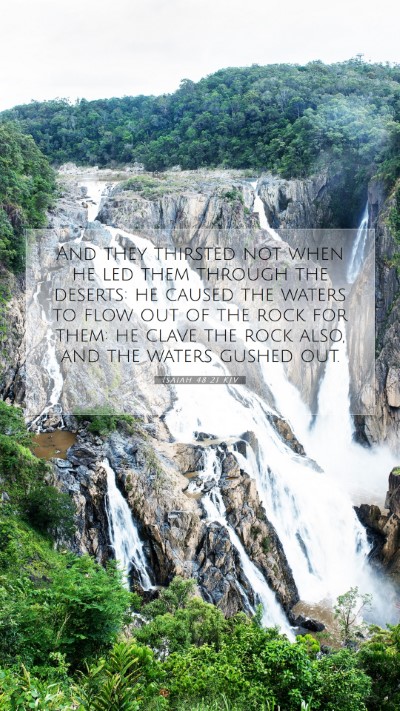Understanding Isaiah 48:21
Isaiah 48:21 states, "And they thirsted not when he led them through the deserts: he caused the waters to flow out of the rock for them: he clave the rock also, and the waters gushed out." This verse serves as a powerful reminder of God's provision and care for His people during challenging times. Below we explore its meaning through insights from various public domain commentaries.
Bible Verse Meaning
The meaning of Isaiah 48:21 can be understood in several key areas:
- Divine Guidance: The verse emphasizes that God leads His people, indicating His continuous guidance throughout life’s journey.
- Provision in Despair: It illustrates the miraculous provision of water in a dry, desert environment, symbolizing God’s ability to provide for physical and spiritual needs.
- Historical Context: This reflects back to the Israelites' journey in the wilderness. It serves as a reminder of God's faithfulness despite their unfaithfulness.
- Trust in God's Promises: Encourages believers to trust that God will provide in their own deserts or dry seasons of life.
Bible Verse Interpretations
From a broader perspective, various commentaries provide unique interpretations:
- Matthew Henry: Henry highlights the miraculous nature of God's provisions and how it serves to strengthen faith. He points out that God's actions in this verse serve as a testament to His unfailing love and grace.
- Albert Barnes: Barnes elaborates on the historical significance, explaining how the mention of the rock symbolizes Christ, as referenced in the New Testament. He draws correlations between Old Testament experiences and New Testament teachings.
- Adam Clarke: Clarke emphasizes the importance of recognizing divine intervention in daily life and encourages believers to observe how God works through seemingly impossible circumstances.
Scripture Analysis
In-depth analysis reveals deeper truths about God's character. The context of Isaiah 48 emphasizes the importance of recognizing God's sovereignty and His active role in the lives of His people.
By recalling the historical events during the journey to the Promised Land, this verse reinforces God's faithfulness over generations, encouraging current believers to reflect on their relationship with Him and trust in His plans.
Biblical Exegesis
Examining the exegesis of Isaiah 48:21 allows us to delve into the theological implications:
- God’s Sovereignty: The passage illustrates God's rule over nature and His ability to control the elements for the benefit of His people.
- Covenant Faithfulness: It reminds the reader of the covenant relationship God has with His people, providing care and sustenance amidst trials.
- Foreshadowing of Christ: It is a prefiguration of Christ, the Living Water, who quenches our thirst for spiritual life.
Bible Study Insights
This verse invites readers to reflect on their own lives:
- Consider moments where God has provided unexpectedly.
- Think about times of dryness in your faith and how God has shown up in those moments.
- Use this verse as a guide in your personal Bible study lessons to reinforce trust in God's providence.
Application of Scripture
Practical applications of Isaiah 48:21 include:
- Encouragement in Trials: Use this verse in conversations with fellow believers during difficult times.
- Inspiration for Prayer: Pray for God to reveal His provisions in your life as you face challenges.
- Discussion in Bible Study Groups: Invite discussions in Bible study groups focusing on experiences of God’s provision.
Cross References
This verse can be related to and understood better with the following Bible references:
- Exodus 17:6 - God provides water from the rock for His people.
- Psalm 78:15-16 - A reminder of God's wonders and provisions in the wilderness.
- 1 Corinthians 10:4 - The reference of Christ as the spiritual rock.
Conclusion
Isaiah 48:21 is a poignant scripture that encapsulates the essence of God's care and provision. In studying this verse, believers can find depth in understanding how God's historical acts of provision reflect His ongoing relationship with humanity. As we consider the theological implications and applications, we can confidently approach life's deserts knowing that God leads and provides.


